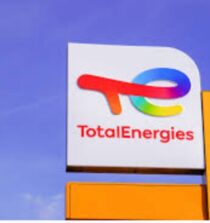By Bertrand Piccard
Dear COP24 Negotiators, during these next couple of weeks, in Katowice, Poland, you will have to decide on measures urgently needed to ensure the future quality of life on earth for humanity. That is what COP24 is all about. You understand better than most the dramatic consequences of even a small increase in global temperature.
The Paris Agreement, which the entire world welcomed in 2015, must be seen as a beginning and not as an end in itself. It could very well remain a dead letter if we lack the political courage to ensure that this international commitment results in operational reality. It is now up to you to define what it will take to implement it.
You must accept that this enormous responsibility is in your hands. You could of course resist and dig into entrenched positions. Or you can act as heroes and rise to the challenge of creating the framework that will enable us to decarbonize our economy as fast as possible. The choice is a stark one: stagnation or progress, timidity or audacity. Which will you choose? I would never ask you to make this choice if it involved sacrifices for your countries, your people or your economies.
Fortunately, this is about something else. Thanks to technological developments, the fight against global warming is no longer a constraint. Quite the contrary: it has become a huge opportunity, and I see it day after day. Since the success of the first round-the-world flight by solar airplane and through the Solar Impulse Foundation, I have met hundreds of entrepreneurs and innovators offering solutions in the fields of water, energy, mobility, cities, agriculture and industry.
And unlike ten years ago, the new systems, products and technologies that make up these solutions have now become financially viable. This is how, in both the poorest and richest countries, we can create jobs and wealth, reduce inequalities, increase social stability and boost growth whilst also protecting the environment.
In other words, we can achieve clean, qualitative growth which is clearly preferable to our present contaminated predicament. The replacement of outdated and polluting infrastructures with modern and efficient ones is the industrial market opportunity of the 21st century.
Did you know that buildings can now be insulated so well that they become energy neutral? Or that the energy needed for heating can be reduced by a factor of four and for public and private lighting by a factor of ten? We are now even able to use solar energy to desalinate sea water.
Smart control systems can be installed to balance production, storage and energy use to the point of halving a population’s consumption; biodegradable plastic can be produced from milk protein; cow methane emissions can be reduced by 30 per cent with a simple feed additive. And until the only vehicles on the road are electric, we can reduce particulate emissions from internal combustion engines by 80 per cent thanks to a combustion improvement system.
Furthermore, in half of the world’s countries, solar and wind energy already produce electricity up to 3 times more cheaply than gas, coal and oil.
These are just a few examples of clean technologies. My goal is to bring 1,000 of them to you and the world’s decision-makers so as to prove that the solutions already exist and encourage you to adopt much more ambitious energy policies and environmental targets. You will soon have to decide on your “nationally determined contributions” (NDC), which are the cornerstone of the fight against climate change. These NDCs will be a testament to your commitment to integrate the existence of these solutions.
So think long term and be bold!
Innovators and entrepreneurs around the world are striving to invent solutions to climate change and build a more efficient, clean and fair society.
Their solutions make it possible to reduce costs, increase performance and improve living conditions without using fossil fuels. But as long as we accept as standard the polluting, wastage and unlimited release of CO2 into the atmosphere, who will invest in these new solutions?
It is not only for climate change that your decisions are fundamental, but also against pollution. Each year, air toxicity kills 6.2 million people and causes even more suffering. This is unacceptable both in terms of human and public health costs. It would be such a waste not to act, and no one would forgive you, least of all yourselves.
It is therefore essential that you change the rules of the game. You have a responsibility to bring these solutions to market by modernising the regulatory framework at all levels: biodiversity protection, agricultural production, industrial processes and energy consumption.
The power is in your hands to accelerate their deployment. I am convinced that we can decarbonise our economies well before 2050.
Better still, we have the opportunity to transition towards sustainable growth globally. You must see this as a unifying agenda, a unique occasion for bringing the countries of the world together around a common vision.
I know that many are still afraid of change. Some still doubt that climate change is even a man-made phenomenon.
It is essential to speak their language, and to tell them that today’s technological solutions are as logical as they are ecological. Even if the climate were not in danger, the adoption of clean technologies would make economic and financial sense.
Dear COP24 Negotiators, I hope I can trust you to be up to the task at hand, and to integrate in your discussions the fact that profitable solutions do exist. It is up to you to be on the right side of history.
Dr Piccard is the Initiator and Chairman of the Solar Impulse Foundation.







